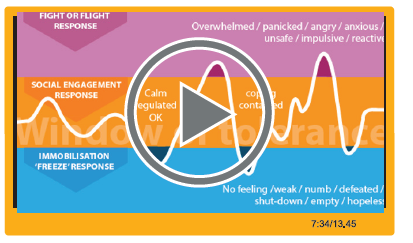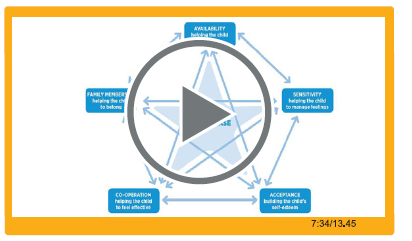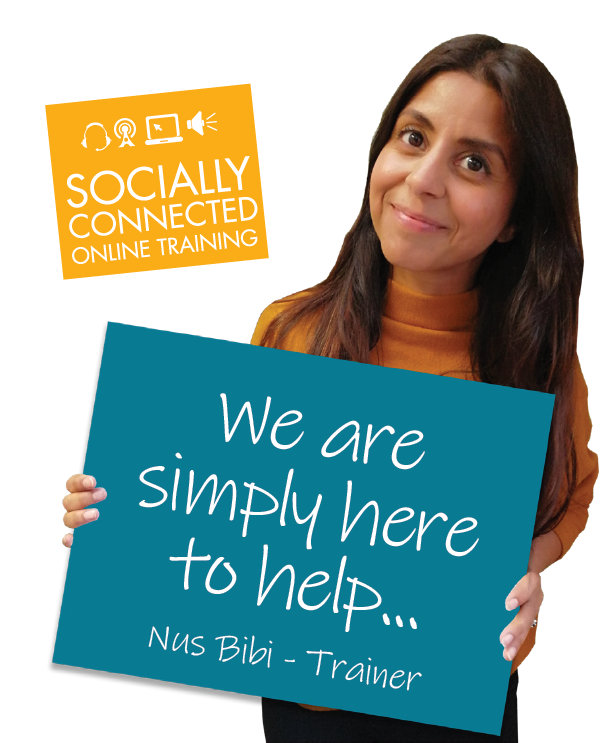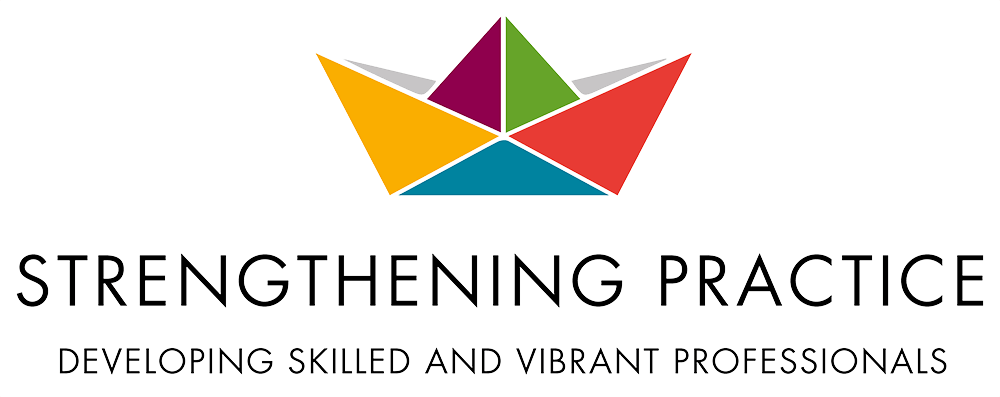


The following subjects will be offered as 15-20 minute video-based courses, complete with downloadable resources.
The following subjects will be available very soon.
Direct Work with Children: Social Work Tools
The focus of social work should be about understanding the child’s journey and to be able to hear their story and voice in all the work we do.

During these sessions we will look at some of the tools that social workers can use to enable us to do just that. It is important to remember that every child is unique, so we should cater the tools to the situation and to the child’s age and learning needs.
Aim
The aim is to help social workers familiarise themselves with direct work tools and have the confidence to use them in their practice.
Outcome
Using the ‘Window of Tolerance’ in times of anxiety
 Regulating and containing ourselves
Regulating and containing ourselves
Strengthening Practice will use the ‘Window of Tolerance’ model to think about how we can all regulate and contain ourselves in the current
circumstances. With heightened anxiety and uncertainty, many will experience more emotional highs and lows than at other times. Using the ‘Window of Tolerance’ we will unpack some simple principles that help.
Aim
Outcome
Safe uncertainty: Revisiting Mason’s Model
 When is it safe to be uncertain?
When is it safe to be uncertain?
This may sound like one of those impossible to solve riddles crafted by a puzzle master in the dead of night, while insomnia and the flickering blue light of a computer screen conspire to rob her of all reason. But social workers deal with uncertainty all the time. We are quite familiar with it, but do we understand how to use uncertainty to support our analyses? Using Barry Mason’s original model, as well as Jo Williams’s article from Research in Practice, we have put together a webinar to revisit this important concept.
Aim
Outcome
The Secure Base Model
 The Secure Base Model is a framework for therapeutic care giving.
The Secure Base Model is a framework for therapeutic care giving.
The model promotes the need for care givers to provide positive secure relationships to promote the development of children in their care. Providing children with a secure base enables them to move towards greater security and building resilience. This model is based on the theories of attachment and resilience, as well as lessons from research about placements.
Aim
The aim of these sessions is to support social workers and professionals to promote attachment and resilience in foster care and adoption.
Outcome
Understanding Capacity Using the Jug Analogy: How to understand our own and others’ capacity

When assessing parenting capacity, it is essential that we consider the individual holistically and spend time exploring with them what is ‘filling up’ their capacity. The same goes for us. For each of us there are many things that take our capacity – both in our personal and professional lives – and to be helpful we need to be able to offer any spare capacity we have.
This simple and powerful tool uncovers the connection between our own capacity and that of the people we are seeking to help.
Aim
Outcome
Group Supervision Using Kolb’s ‘Experiential Learning’: Staying socially connected and reflective!

Social workers are expected to be highly skilled at juggling numerous tasks, developing and retaining large amounts of knowledge and applying it in increasingly complex ways, and putting everything together so that the most vulnerable people in our communities benefit from our interventions.
Strengthening Practice will use the ‘Solution Focused Questions’ card from Siobhan Maclean’s Reflective Practice Cards pack, to encourage lively conversations about critical thinking and analysis.
Aim
Outcome

Other subjects in development
- Grounding techniques
- Building Resilience
- The Risk and Resilience Map Tool: A tool for understanding and assessing resilience
- Humane home visiting
- Building relationships differently
- The ‘Impact on the Child’ tool: Measuring the impact on the child
- Biology, Behaviour and Environment: Being your best self in challenging times
- How to survive together at home during self-isolation
- Group Supervision Using ‘Solution Focused Questions’: Staying socially connected through learning
- Keeping grounded in uncertain times
- Tools for families to use During COVID-19
Want to watch these videos?
![]()
To watch our training videos, you must have a subscription. Please contact us for further details.
